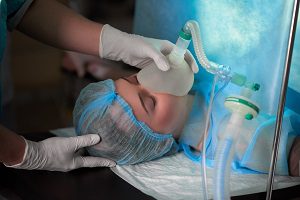Sedation Dentistry
Dental Implants Solutions
Dentist visits are often accompanied by discomfort, worry, and dread for many of us. Unfortunately, the anxiety of going to the dentist sometimes leads us to put off procedures that could have been done sooner rather than later. This nervousness can possibly be eased with an anesthesia at your dentist's office. Every operation, from critical surgery to basic dental cleaning, can be eased down with sedation dentistry. While under general anesthesia, a variety of treatments are used to calm the patient, ranging from nitrous oxide or "laughing gas" to more potent sedatives. Dentists need not be avoided by anybody, even those with the most acute dental apprehensions.
What Are Your Options?
In sedation dentistry, patients are given medicine to help them relax throughout their dental treatments. It is commonly referred to as "sleep dentistry."
Sedation levels include:
Minimal Sedation – Patients with little sedation are awake but calm.
Moderate Sedation – In this case, the patient would likely slur his or her words when speaking, and may not remember much of the procedure.
Deep Sedation – Patients who are deeply sedated are almost unconscious but they can still be awakened.
General Anesthesia – The patient is completely unconscious under general anesthesia and needs some time in recovery room to regain consciousness. This is only done under severe circumstances.
Is Sedation Dentistry Safe?
Anesthesia is never without risk. Dentists who know what they're doing administer it safely most of the time. People who are obese or have obstructive sleep apnea, however, should see their doctor before having sedation administered. This is due to the fact that they are more susceptible to anesthetic problems. The sort of sedation you will be getting should be administered by a dentist who is trained and certified to do so.
Always notify your dentist in advance if you suffer from any of the following conditions: diabetes; hypertension; heart disease or respiratory illness. Be sure to disclose any anesthesia-related allergies you've experienced in the past.
Why Should You Choose Dental Sedation?

In terms of sedation types and levels, there are a variety of options. Common sedatives include intravenous (IV) and oral anesthetics in addition to inhaled sedations such as nitrous oxide or laughing gas.
When used in the right circumstances, they can give a wide range of advantages to the uneasy patient.
- Reduce Anxiety with Dental Sedation
Dental phobia and anxiety are real medical conditions. Those who have a fear of the dentist would naturally look for anything that might help them overcome that fear so that they can maintain their oral health. Most importantly, dental sedation can help you relax before, during, and after your procedure by reducing anxiety. This helps to relax you so that you can get therapy. Nothing is worse than delaying treatment for something treatable, such as gum disease in its earliest stages.
- Sedation Dentistry Comes in Many Forms
Depending on your concerns, anxieties, and the nature of surgery you're having, you'll want to have a different form of sedation. As opposed to IV or oral sedation, laughing gas is a safer alternative. But if you're afraid of going to the dentist altogether, IV sedation could be a better alternative. Lucky for you, there are numerous choices available to make your next dentist appointment as comfortable as possible.
- Sedation Dentistry Can Relieve Discomfort
Some people's fear of the dentist is understandable. Pain in the teeth or gums is something that no one wants to explore! Preparing yourself for pain can cause anxiety. Patients with sensitive teeth, low pain thresholds, and sensitive gag reflexes might consider dental sedation, which can help them relax during their dental visit. As for reducing your overall discomfort throughout any dental operation, simply relaxing is an easy method to do it.
Final Thoughts
The fear of dental treatment should not stop you from getting it. In addition to aesthetic dentistry, maintaining your dental health means preventing serious illnesses like periodontitis that might impact your entire health. If you're concerned about going to the dentist or interested about the advantages of dental sedation, you should contact a dentist in your area for more information.
However, it's crucial to remember that dental sedation on its own can lessen anxiety and pain. But your dentist will offer anesthetics for pain management based on your requirements.
To learn more about sedation dentistry, contact your Walnut Creek dentist, Dr. Massood Darvishzadeh, at Dental Implant Solutions today.
*There is no treatment guide on this website, and it should not be used as a substitute for professional dental advice from a dentist. It is highly recommended that you get the advice of a qualified dentist or other medical practitioners regarding your specific dental condition.
*Neither this nor any of the other content in this media is meant to prescribe, recommend, or prevent any treatment or procedure.
Resources:
Subscribe To Our Newsletter
Get Updates And Learn From The Best
More To Explore



CONTACT US
Massood Darvishzadeh, DDS
2021 Mt Diablo Blvd., Suite 100A
Walnut Creek, CA 94596
(925) 939-2600info@dentalimplantsolutions.net